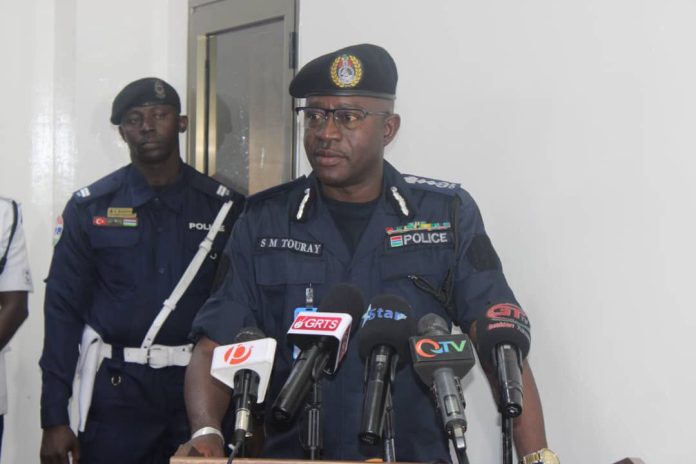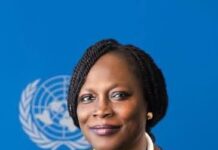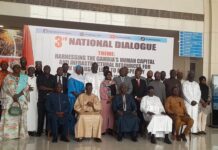
By: Alieu Ceesay
Inspector General of Police Seedy Mukhtar Touray has presented his strategic plan and vision to reform the Gambia Police Force during his inaugural major press conference, which took place three months following his appointment to the highest rank of police leadership.
In his inaugural press briefing, IGP Touray revealed a transformative vision for The Gambia Police Force. He tackled the pressing societal and operational challenges confronting the force, heralding a new era of policing in The Gambia.
“Today marks the beginning of a comprehensive journey to modernize our police force,” Touray began, his voice steady and authoritative. Having spent three months in his role, he was acutely aware of the issues plaguing the police and the broader society. From rampant land disputes to the scourge of drug trafficking, Touray had identified key areas requiring urgent attention.
One of the most pressing issues was the controversial practice of issuing multiple land documents, which had sparked numerous disputes. “This practice has led to countless conflicts,” he stated firmly. “We will implement tougher measures to resolve these issues decisively.” Touray’s commitment to justice was palpable as he stressed the importance of fairness and integrity in land dealings.
Touray also emphasized the need for cultural discipline and respect within society. “There is a need for respect towards elders and leaders,” he urged. He called on Gambians to end the culture of insults and hate speech that had become prevalent, promising to uphold justice without bias. His words resonated with the audience, highlighting his vision of a more respectful and united society.
Another critical focus of Touray’s briefing was the operational challenges within the police force. He highlighted significant gaps in forensic capabilities that hindered effective criminal investigations. “We plan to enhance the use of forensic evidence to minimize human error in criminal investigations,” Touray announced. Echoing a fundamental judicial principle, he added, “It’s better to free a guilty suspect than to convict an innocent one.”
Mobility issues also posed a significant obstacle to effective policing. “Many police stations lack the vehicles needed to respond promptly to public calls,” he pointed out. This shortage severely hampered the police force’s ability to operate efficiently. To address this, Touray outlined plans to improve resource allocation, including providing more uniforms and constructing six additional model police stations nationwide. “These steps will enhance the professional environment for our police force,” he assured.
Digitalization was another cornerstone of Touray’s strategy. “Digitalization will streamline workflow and records management, improving efficiency and reducing operational costs,” he explained. This initiative aimed to modernize The Gambia Police Force, making it more effective and responsive to the community’s needs.
In his closing remarks, IGP Touray underscored the importance of public support in achieving these ambitious reforms. “Public support is crucial in restoring trust and confidence in the police,” he asserted. He called on the community to join this transformative journey, emphasizing that collective effort was essential for a safer and more just society.





